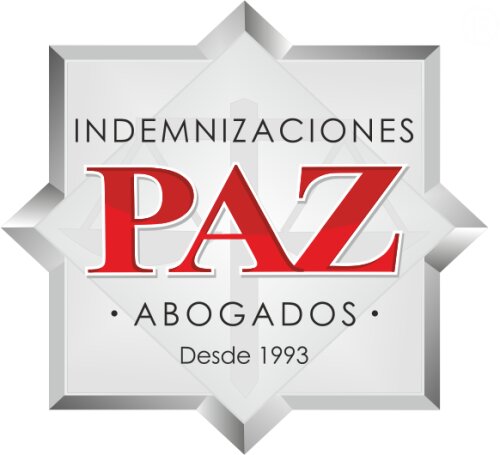Best Communications & Media Law Lawyers in Pasto
Share your needs with us, get contacted by law firms.
Free. Takes 2 min.
List of the best lawyers in Pasto, Colombia
About Communications & Media Law in Pasto, Colombia
Communications & Media Law in Pasto, Colombia, refers to the set of rules and regulations that govern the dissemination of information and content via various media channels. These include television, radio, the internet, print publications, and telecommunications. This legal field is concerned with issues such as freedom of speech, censorship, defamation, privacy, copyright, intellectual property, advertising regulations, and the operation of communications infrastructure. In Pasto, as in the rest of Colombia, Communications & Media Law is shaped by the national legal framework, with additional considerations for local practices and enforcement.
Why You May Need a Lawyer
There are a variety of circumstances where individuals or businesses in Pasto might require legal assistance in the area of Communications & Media Law. A lawyer can help if you face legal challenges related to publishing or broadcasting content, accusations of defamation, or privacy violations. Journalists, content creators, social media influencers, bloggers, and media companies often encounter complex legal issues around copyright, licensing, and intellectual property. Additionally, if you are subject to governmental regulation or facing fines for advertising or broadcasting, consulting a lawyer is essential to protect your rights and interests.
Local Laws Overview
The legal framework governing communications and media in Pasto is primarily dictated by Colombian national legislation, including the Political Constitution of Colombia, the Law 1341 of 2009 (ICT Law), Law 679 of 2001 (to prevent child sexual exploitation), and Law 23 of 1982 (Copyright Law). The Colombian National Television Authority (ANTV) and the Communications Regulation Commission (CRC) are the leading regulatory bodies overseeing compliance and licensing in the sector. Local authorities in Pasto may also enforce certain ordinances regarding local advertising and public communications.
Key aspects relevant to Pasto include:
- Freedom of expression is protected, but with exceptions for slander, libel, and incitement to violence.
- Strict regulations against the dissemination of content harmful to minors or that promotes discrimination.
- Clear copyright laws that protect author’s rights and establish how content can be used or shared.
- Specific licensing requirements for radio, television, and telecommunications operations.
- Privacy regulations addressing the collection and dissemination of personal data, particularly in digital communications.
Frequently Asked Questions
What is Communications & Media Law?
It covers the legal regulations and protections related to the creation, distribution, and consumption of media and communications, including print, broadcast, digital, and telecommunications.
Is freedom of speech absolute in Pasto, Colombia?
No, while freedom of expression is a constitutional right, it is subject to limits, notably in cases involving defamation, hate speech, national security, or incitement to violence.
What should I do if I am accused of defamation by a media outlet?
You should consult a lawyer experienced in media law. Defamation cases require careful analysis of the content, intent, and public interest involved.
How is copyright handled in Colombia?
Copyright is protected under national law. You must obtain permission to use protected works, and unauthorized use can result in legal consequences.
Can anyone start a radio or TV station in Pasto?
No, you must obtain the appropriate licenses and comply with national and local regulations before operating a broadcasting service.
What are the regulations regarding online content and social media?
The same legal standards for traditional media often apply to online platforms. Content must not infringe copyright, violate privacy, or incite violence. There are also regulations concerning data protection.
Are there restrictions on advertising?
Yes, advertisements cannot be misleading, must not promote illegal activities, and should respect minors’ rights as well as general ethical standards.
How can I protect my work as a content creator?
Registering your work with the National Copyright Directorate secures your rights and provides legal support in case of infringement.
What is considered personal data and how is it protected?
Personal data includes any information that can identify an individual. Colombian law mandates strict standards for collecting, storing, and processing such data, especially in digital environments.
Can government authorities censor media content in Pasto?
Government authorities can only intervene in limited circumstances, such as ensuring national security, protecting minors, or enforcing defamation laws.
Additional Resources
If you need more information or support regarding Communications & Media Law in Pasto, the following resources may be helpful:
- National Copyright Directorate (Dirección Nacional de Derecho de Autor) - For copyright registration and related advice.
- Colombian Communications Regulation Commission (Comisión de Regulación de Comunicaciones, CRC) - For telecommunication and media regulation queries.
- National Television Authority (Autoridad Nacional de Televisión, ANTV) - For television licensing and broadcasting regulations.
- Local Bar Associations (Colegio de Abogados) - For referrals to lawyers with expertise in media and communications.
- Higher Education Institutions such as local law faculties, which may offer free or low-cost legal clinics for community members.
Next Steps
If you believe you require legal assistance in Communications & Media Law in Pasto, consider the following steps:
- Gather all documentation and information related to your situation or inquiry.
- Identify the specific area of communications or media law relevant to your case, such as defamation, copyright, or licensing.
- Contact a qualified local lawyer with experience in media law for a consultation.
- Utilize available governmental resources and professional bodies for guidance and potential mediation before litigation.
- Consider reaching out to local universities or law clinics for preliminary advice if cost is a concern.
- Stay proactive and informed about your rights and responsibilities as they pertain to communications and media activities in Pasto.
Lawzana helps you find the best lawyers and law firms in Pasto through a curated and pre-screened list of qualified legal professionals. Our platform offers rankings and detailed profiles of attorneys and law firms, allowing you to compare based on practice areas, including Communications & Media Law, experience, and client feedback.
Each profile includes a description of the firm's areas of practice, client reviews, team members and partners, year of establishment, spoken languages, office locations, contact information, social media presence, and any published articles or resources. Most firms on our platform speak English and are experienced in both local and international legal matters.
Get a quote from top-rated law firms in Pasto, Colombia — quickly, securely, and without unnecessary hassle.
Disclaimer:
The information provided on this page is for general informational purposes only and does not constitute legal advice. While we strive to ensure the accuracy and relevance of the content, legal information may change over time, and interpretations of the law can vary. You should always consult with a qualified legal professional for advice specific to your situation.
We disclaim all liability for actions taken or not taken based on the content of this page. If you believe any information is incorrect or outdated, please contact us, and we will review and update it where appropriate.









